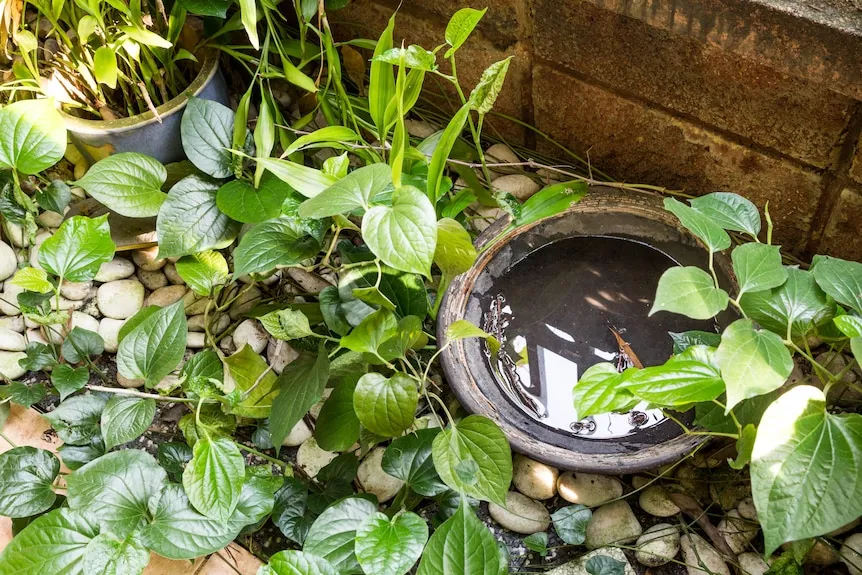Mosquitoes are not pestering insects but are a great health risk worldwide. They carry along several diseases such as malaria, dengue fever, Zika virus, and West Nile virus. Due to the rise in cases of mosquito-borne diseases and the growing concern against conventional control measures, there is a great demand for new management technologies for mosquitoes. Falkeco Mücken seems like the panacea toward the ideal application of high-tech utilisation with eco-friendly procedures for comprehensive mosquito control. This paper delineates the intricacies of Mücken, its innovative solutions, advantages, and its probable use in future mosquito control.
Understanding the Mosquito Problem
The Global Impact of Mosquitoes
Mosquitoes are estimated to be responsible for millions of deaths annually due to the diseases they transmit. According to the World Health Organization (WHO), mosquito-borne diseases lead to significant morbidity and mortality, particularly in tropical and subtropical regions. The increasing incidence of these diseases has prompted public health officials to prioritize mosquito control efforts.
Challenges in Mosquito Control
- Resistance to Insecticides: Over the years, mosquitoes have developed resistance to many commonly used insecticides. This resistance poses a significant challenge for public health programs that rely on chemical control methods.
- Environmental Concerns: Traditional mosquito control methods often involve the widespread use of chemical insecticides, which can have harmful effects on non-target species and the environment. These chemicals can contaminate water sources and negatively impact biodiversity.
- Changing Climate: Climate change is expanding the range of many mosquito species, leading to increased transmission of mosquito-borne diseases in regions previously unaffected. This shift necessitates adaptive management strategies that consider local environmental conditions.
- Urbanization: Rapid urbanization has created ideal breeding conditions for mosquitoes. Stagnant water in urban areas, often found in discarded containers, construction sites, and clogged drainage systems, provides breeding grounds for these pests.
The Need for Innovative Solutions
Given the multifaceted challenges associated with mosquito control, there is an urgent need for innovative, sustainable solutions. Mücken addresses these challenges through a comprehensive approach that combines technology, environmental responsibility, and community engagement.
What is Falkeco Mücken?
Mücken is a state-of-the-art mosquito management system designed to reduce mosquito populations while safeguarding the environment. This approach integrates various methodologies, ensuring that mosquito control efforts are both effective and sustainable.
Key Features of Mücken
- Targeted Insecticides: Mücken employs targeted insecticides designed to affect specific mosquito species while minimizing harm to non-target organisms. This precision helps maintain ecological balance and reduces the risk of insecticide resistance.
- Biological Control Methods: The system includes biological control agents, such as larvivorous fish, which feed on mosquito larvae, and natural predators that help keep adult mosquito populations in check. This method relies on natural ecosystems to regulate mosquito numbers.
- Smart Traps: Mücken utilizes innovative trapping technologies that attract and capture adult mosquitoes. These traps use attractants based on mosquito pheromones and visual cues to lure insects effectively. They are strategically placed in high-risk areas to maximize capture rates.
- Data-Driven Strategies: Mücken incorporates advanced data analytics to monitor mosquito populations, breeding sites, and activity levels. By analyzing data collected from traps and environmental sensors, the system can tailor interventions to specific locations and times.
- Public Education and Involvement: Community engagement is crucial for successful mosquito management. Mücken provides educational resources to inform the public about preventive measures, such as eliminating standing water and using personal repellents. By fostering community participation, the system enhances the overall effectiveness of mosquito control efforts.
How Mücken Works
Mücken operates on a multi-faceted approach:
- Assessment: The first step involves assessing the local mosquito population and identifying breeding sites. This assessment is conducted using data analytics and field surveys.
- Implementation of Control Methods: Based on the assessment, Falkeco Mücken implements a combination of targeted insecticides, biological controls, and smart traps to reduce mosquito populations.
- Monitoring: Continuous monitoring of mosquito activity and population dynamics allows for timely interventions. Data collected from traps and environmental sensors informs adjustments to control strategies.
- Community Engagement: Mücken actively engages the community through educational programs, workshops, and outreach initiatives. Involving the public ensures a collaborative approach to mosquito control.
The Science Behind Effective Mosquito Elimination
1. Targeted Approach
The success of Mücken lies in its targeted approach to mosquito control. By using insecticides that are specifically designed to disrupt the life cycle of targeted mosquito species, Mücken minimizes collateral damage to other insects and wildlife. This focus not only improves effectiveness but also helps to preserve beneficial species within the ecosystem.
2. Biological Controls
The integration of biological control methods represents a significant advancement in mosquito management. Falkeco Mücken uses natural predators and competitors to control mosquito populations. For example, introducing fish that consume mosquito larvae into standing water bodies can significantly reduce breeding sites, thus lowering adult mosquito populations.
3. Smart Technology
Mücken utilizes cutting-edge technology to enhance its mosquito control strategies. Smart traps equipped with sensors can provide real-time data on mosquito populations and their behavior. This data can be analyzed to determine the most effective times for intervention and the best locations for trap placement.
4. Data-Driven Decision Making
Mücken leverages data analytics to inform its mosquito management strategies. By analyzing environmental data, mosquito population dynamics, and previous control efforts, the system can optimize its interventions for maximum effectiveness. This data-driven approach allows for more precise targeting of resources, ultimately leading to better outcomes in mosquito control.
Mücken: Safe for Your Family and Pets
Safety is a primary concern for families when it comes to pest control. Mücken prioritizes the health and well-being of humans and pets by employing eco-friendly methods that minimize chemical exposure.

1. Eco-Friendly Practices
Mücken’s use of targeted insecticides and biological controls reduces the overall chemical load in the environment. This means that families and pets are less likely to come into contact with harmful substances, making the environment safer for everyone.
2. Community Education
Mücken emphasizes the importance of educating communities about safe practices for mosquito management. By providing resources on how to eliminate breeding sites and safely use repellents, the system empowers families to take proactive steps in mosquito prevention.
3. Monitoring and Adjustments
The ongoing monitoring and adaptive management strategies employed by Mücken ensure that interventions are adjusted based on real-time data. This means that if there are changes in mosquito behavior or population dynamics, the strategies can be adapted to maintain safety and effectiveness.
Benefits of Falkeco Mücken
1. Environmental Responsibility
One of the standout features of Mücken is its commitment to environmental sustainability. By prioritizing eco-friendly practices, the system reduces the reliance on harmful chemicals and promotes biodiversity. The use of biological control agents and targeted insecticides minimizes the impact on non-target species, contributing to healthier ecosystems.
2. Enhanced Effectiveness
The integration of multiple control methods ensures a more effective approach to mosquito management. By targeting specific species and life stages, Falkeco Mücken achieves significant reductions in mosquito populations. The use of data-driven strategies allows for timely and precise interventions, further enhancing effectiveness.
3. Community Engagement and Empowerment
Mücken recognizes the importance of community involvement in successful mosquito control. By educating the public and encouraging participation in mosquito management efforts, the system fosters a sense of responsibility among residents. This collective action can lead to more sustainable outcomes and heightened awareness of public health issues.
4. Cost-Effectiveness
Investing in innovative mosquito control methods can lead to long-term cost savings. Traditional methods often require repeated applications of insecticides and ongoing monitoring. Mücken’s targeted approach reduces the need for extensive chemical applications and optimizes resource allocation.
5. Adaptability to Local Conditions
Mücken’s data-driven strategies enable it to adapt to changing environmental conditions. By analyzing local data, the system can tailor its mosquito management efforts to address specific challenges faced in different regions. This adaptability ensures that Falkeco Mücken remains effective, regardless of external factors.
The Future of Mosquito Control
As the global landscape changes, so too do the challenges associated with mosquito control. Climate change, urbanization, and the evolution of mosquito species necessitate innovative and adaptive management strategies.
Research and Development
Ongoing research and development are crucial for enhancing the effectiveness of Mücken. Scientists are continually exploring new biological control agents, refining data analytics, and developing improved trapping technologies. This commitment to innovation ensures that Mücken stays at the forefront of mosquito management.
Policy and Collaboration
The fight against mosquito-borne diseases requires collaboration among governments, public health organizations, and local communities. Mücken encourages partnerships to share knowledge, resources, and best practices. By fostering collaboration, stakeholders can develop comprehensive strategies that address the multifaceted challenges of mosquito control.

Technological Advancements
Advancements in technology will play a significant role in the future of mosquito control. Innovations such as remote sensing, machine learning, and artificial intelligence can enhance data collection and analysis, leading to more effective interventions. Mücken is committed to leveraging these technologies to optimize mosquito management efforts.
Global Implications
The impact of Mücken extends beyond local communities. By reducing mosquito populations and the diseases they carry, the system contributes to global public health efforts. As more regions adopt innovative mosquito control measures, the overall burden of mosquito-borne diseases may decrease, improving health outcomes worldwide.
Case Studies of Falkeco Mücken in Action
1. Urban Implementation
Mücken, in a big metropolitan area, was an arena that had taken the concerns over the spread of West Nile virus to a high level. The program started by conducting mosquito population and breeding site assessment. Twenty smart traps were put in different parts of the city to provide firsthand information on mosquito activities.
Applications of targeted insecticides and introduction of biological control agents depleted mosquito populations remarkably in the city. Increased awareness on preventive measures through community education complemented efforts of the program.
2. Rural Community Engagement
In a rural community, Mücken adopted all stakeholders around such a region by implementing an elaborate mosquito control program. This included running workshops to educate families on sites where mosquitoes breed and practical needs to require preventive measures.
Mücken collaborated with the community to enhance resident participation and encourage them to identify stagnant water sources and take part in monitoring. Community involvement, targeted interventions, and ongoing monitoring all resulted in a significant decline in mosquito populations and consequently reported mosquito-borne diseases.
Key Takeaways
- Mücken is an innovative mosquito control solution that combines targeted insecticides, biological control methods, and advanced technology.
- The system prioritizes environmental sustainability and community engagement to create a collaborative approach to mosquito management.
- By leveraging data analytics, Mücken adapts its strategies to local conditions, ensuring effective and safe mosquito control.
- Long-term benefits include reduced mosquito populations, improved public health, and enhanced ecological balance.
Conclusion
Falkeco Mücken leads the innovation front in mosquito control solutions as it encompasses the colossal challenges that mosquitoes and the diseases they spread pose. With an emphasis placed on ecological sustainability, community engagement, and an evidence-based approach, Mücken is changing how mosquito management is approached to better serve both public health and environmental interests. Meanwhile, the struggle of mosquito-borne diseases will be fought through solutions such as Mücken to make communities safer and healthier.










